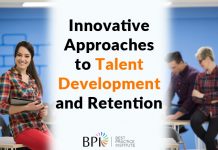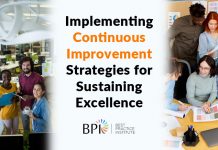Global Marketplace Driven by Digital Technology
Digital technology has transformed the way in which organization’s think of managing their talent, projects, and global presence. The technology enables organizations to transform themselves into a highly adaptable, and change-ready enterprise. This requires a workforce that is easily adaptable and can change with the dynamic marketplace.
Rise of the Liquid Workforce
The requirement for an agile highly adaptable workforce gave rise to what many call the Liquid Workforce. They describe the liquid workforce as one made up of traditional employees, freelancers, temporary workers, consultants, volunteers, outsourced resources, and others such as robots, drones, and AI computers. The challenge is to determine the makeup of the Liquid workforce. It is this makeup that results in the fluidity of the workforce. Technology can be used to form a collaborative environment where adding skilled workers is immediate and solutions are formed quickly and in a cost-effective way.
Rethinking Retention Strategy is Needed
The future workforce will be dominated by Gen Y and Z employees and a significant increase in post pension age workers[1].
With the fluidity and makeup of the workforce, how do you recruit and maintain the mix of talent necessary to react with agility to a changing market?
One strategy includes establishing a Customer Experience[2] for recruitment. This involves providing the potential new hire a view of the organization by putting in front of them previous candidates, new hires, and longtime employees. This allows the potential hire to see the company through different lenses. It also allows the organization to evaluate the candidate.
Traditional career growth models and benefits such as pensions are not well understood by Gen Y and especially Gen Z individuals. These individuals identify with others in their social circles. Organizations would do well to include individuals matching those cultures in the interview process. Having a common frame of reference, they can explain the benefits of working for their organization in a way that the interviewee can understand. One way to develop individuals to convey the benefits of joining the organization is through two-way mentoring between senior employees and different generational workers. This two-way mentoring helps the senior employees understand the other generations values and senior employees providing administrative and managerial training to the younger employees meeting the value needs of those younger employees.
Firms that provide training opportunities to employees and establish proactive succession plans that identify, and nurture talent will have an advantage in keeping that talent in their organizations. A 2017 study by Yi Wang[3] on Chinese organizations use of succession planning to incorporate newer generation employees into management roles indicated that despite research that indicates Gen Y are not interested in longevity they reacted positively to being on a management track. Including younger individuals in the succession planning process, letting them know the path and providing the training necessary reduces the gap in work values and organizational fit resulting in higher retention rates.
Radical changes from the Baby Boomers, Gen Y employees value autonomy and flexibility as a given not a benefit. Workplace culture is just as important as salary and benefits. This generation wants to have engaging jobs, purposeful live, active communities, and financial stability.
Based on these values they will be drawn to freelance type work environments. Freelance environments provide variety, flexibility, belonging, quick sense of accomplishment, feedback and for many, financial stability.
Establishing an Environment to Retain the Liquid Employee in the Organization
One possible solution to maintaining a liquid workforce that is happy, engaged, and committed is to establish a workplace that meets the needs described above.
Firms need to spend time focusing on creating a highly satisfying employee experience. Applying the same effort and resources that organizations spend on creating a customer/consumer experience would go a long way to retaining “liquid employees” in their organizations.
Generational Differences
Rani and Samuel[4] in their 2016 study “A generational differences in work values and person-organization fit and its effect on turnover intention of Generation Y in India” found that the significant differences in work values between Generation Y and older generations in India are the same as those in the United States. They reported a significantly higher difference in Gen Y’s personal vs. organizational values than Gen X and Baby Boomers. This difference has a direct effect on turnover.
Since many organizations are run by baby boomers and Gen X employees, there could be a mismatch between the values of Gen Y employees and the values that organizations possess and communicate.
Gen Y are driven by a sense of entitlement. Gen Y workers are also different in their work styles. We went from Baby Boomers being loyal, idealistic and value on the job security and a stable work environment to Gen Y that value work-life balance more important than the Baby Boomers values. Rani and Samuel’s research indicates that there is a quadratic relationship associated with the differences between personal and organizational values and turnover intention. When a Gen Y worker perceives a deficit between achievement and reward they leave. Gen Y workers are more mobile and have significantly lower commitment and higher turnover intention.
Organizations must adapt to meet the intrinsic and extrinsic values of Gen Y workers and prepare for the next wave Gen Z.
Meeting the needs of Gen Y and Future Needs of Gen Z
Intrinsically Gen Y value constant feedback and recognition. This does not always need to be positive. Honest instant feedback on performance and increased communication are expected. Organizations that provide only a semi or annual performance review will not meet the intrinsic requirements of the Gen Y worker. BPI’s 2016 Global Talent Management Trends for 2016 validated this view. BPI’s survey revealed that more companies are moving to eliminate the annual performance review in favor of more regular quarterly/monthly feedback.
Challenging jobs that utilize their abilities are essential for Gen Y worker. They look for jobs offering greater responsibility and participative in the decision-making process. They will work well with transformational leaders that practice inclusive styles of management. Directive managers will cause conflict and trigger the Gen Y worker to leave.
They also believe that educational opportunities are a given. They expect organizations to offer training for their growth and improvement. BPI[5] identified this as a trend that will continue into the future. Self-paced e-learning is a solution to Gen Y and Z’s self-improvement needs.
Making Sure That They Fit the Organization
Organizations can provide the opportunities cited above however they need to make sure that they hire the individual that fits the organization. Interviews should include newly hired and senior employees so that the prospective employee can get a better understanding of the organization’s culture. This also provides an opportunity for the organization to gauge a person’s fit in the organization’s culture. If possible, the prospective employee could be given an opportunity to shadow an employee for a day or two. This immersion into the day to day operation of the business can help in ensuring a fit.
Summary
Understanding what motivates employees to stay in an organization is not a new concept, however with the increase and future domination of the workforce by Gen Y and then Gen Z and the radical difference between the values of baby boomers and Gen X require both tactical, now, and strategic HR planning. The organizations that can meet the desires of Gen Y for a more fluid, learning, and technologically rich environment will excel in the global changing marketplace.
[1] Carter, Louis. BPI (2016). Global Talent Management Trends for 2016
[2] Shin’ya Nagasawa and Jens J. Dahlgaard, “Customer Experience Management,” The TQM Journal 20, no. 4 (2008).
[3] Yi Wang and Zhongming Wang, “Influence of New Generation Succession on Team Performance: Evidence from China,” Social Behavior and Personality 45, no. 2 (2017).
[4] Nitya Rani and Anand Samuel, “A Study on Generational Differences in Work Values and Person-Organization Fit and Its Effect on Turnover Intention of Generation Y in India,” Management Research Review 39, no. 12 (2016).
[5] Carter, Louis. BPI (2016). Global Talent Management Trends for 2016










